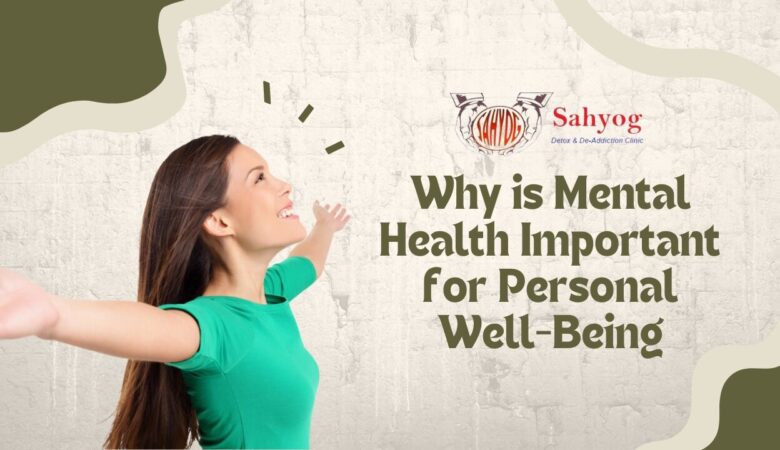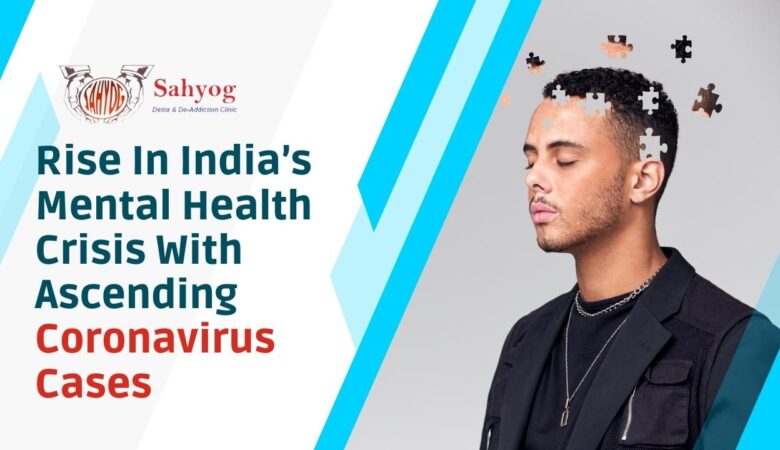Why is Mental Health Important for Personal Well-Being
Introduction In our society, we pour so much focus into our physical health and well-being that we forget about the importance of maintaining a healthy mental state and put mental health as an afterthought. But what exactly is mental health? And why is it important for personal well-being? In this blog post, we will explore the concept of mental health and its importance for individuals. We will also provide some tips on how to maintain good mental health. What is Mental Health? Mental health is often thought of as the absence of mental illness, but this is only part of the picture. It is the ability to cope with difficulties, work productively, and positively contribute to society. Good mental well-being isn’t just about the absence of mental illness, but rather about feeling good about yourself and being able to function in day-to-day life. Everyone has times when they feel down or stressed, but if these feelings last for a long time or start to affect your everyday life, it could be a sign of a more serious problem. Below mentioned are some common signs and symptoms of a poor mental health: Feeling constantly anxious or worried Feeling down or hopeless most days Being uninterested in the activities that were once enjoyed Having low self-esteem Feeling tearful or irritable all the time Avoiding social gatherings and getting introverted Sleeping badly or not being able to concentrate during the day If you’re experiencing any of these symptoms, it’s important to seek help from your GP or another healthcare professional. They will be able to assess your situation and provide support and treatment if necessary. Importance of Mental Health For Physical Well Being Our mental and physical health is strongly connected. When our mental health is poor, our physical health can suffer as well. Conversely, when we’re physically weak, we can suffer mentally as well. This is because our mind and body are intimately connected. Poor mental health can lead to physical problems such as: Chronic stress – which can increase the risk of heart disease, high blood pressure, stroke, and other serious health problems Insomnia – which can lead to fatigue and make it difficult to concentrate or focus on tasks Poor nutrition – as people who are depressed or anxious may not take care of themselves as well as they should, leading to vitamin deficiencies and other nutritional problems Substance abuse – as people may turn to drugs or alcohol in an attempt to self-medicate their mental health problems Physical problems can also lead to mental health issues such as: Chronic pain – which can lead to depression, anxiety, and sleeping disorders. Disabilities – which can make it difficult to perform everyday tasks and participate in activities that you enjoy, leading to feelings of isolation and loneliness. Illness – which can be both physically and mentally draining, making it hard to cope with day-to-day life. It is important to remember that mental and physical health are both important, and should be given equal attention. If you are experiencing problems with either your mental or physical health, it is important to seek help from a professional. The Impact of Mental Health On Overall Personal Well-Being It is now widely accepted that mental health is just as important as physical health for overall well-being. A growing body of research has shown that mental health problems can have a profound impact on every aspect of our lives, from our relationships and work performance to our physical health and lifespan. One of the most surprising findings is that mental health problems are more common than physical health problems. In any given year, one in five adults in the United States will experience a mental illness, making them the largest group of disability claimants in the country. And yet, despite their prevalence, mental illnesses are often viewed as less legitimate than physical illnesses, and sufferers are often stigmatised and reluctant to seek help. This needs to change. Mental health should be viewed as an essential part of overall well-being, and we need to break down the barriers that prevent people from seeking help. Everyone deserves to live a happy, healthy life, free from the burden of mental illness. Tips For Maintaining Good Mental Health Get enough sleep: Adults require at least seven to eight hours of sleep a day. Consider your sleep patterns and make sure you’re getting the rest you need. Eat healthy: You should eat a well-balanced diet that includes both healthy and nutrient-rich foods, such as fruits, vegetables, and whole grains. Be active: A moderate amount of exercise is the key to maintaining good healthy mental state as doing exercise releases hormones called endorphins in the body, which have mood-boosting effects. Connect with others: When it comes to stress relief, there are many activities that can help. One tactic is spending time with loved ones or getting involved in social activities. Take breaks: When feeling too overwhelmed or stressed, take a break. Give yourself a few minutes to relax and rejuvenate yourself. Do things that can make up for your coping mechanism, like taking a hot bath, reading your favourite book, or taking a walk outdoors. Practice self-care: Make time for activities that make you happy and help you relax such as yoga, meditation, and journaling. When Should You Seek Help For Mental Health Concerns? If you are experiencing any of the following symptoms, it may be time to seek help from a mental health professional: You can’t stop worrying: if you find yourself being anxious and worrying all the time, it may be a sign that you’re facing a mental health problem. You feel hopeless or helpless: if you feel hopeless or helpless most of the time then it might be a sign that you have a mental disorder You’re so irritable that you can’t concentrate or get anything done: getting irritated at every small thing so much that you cant concentrate on your work and get anything done might be


